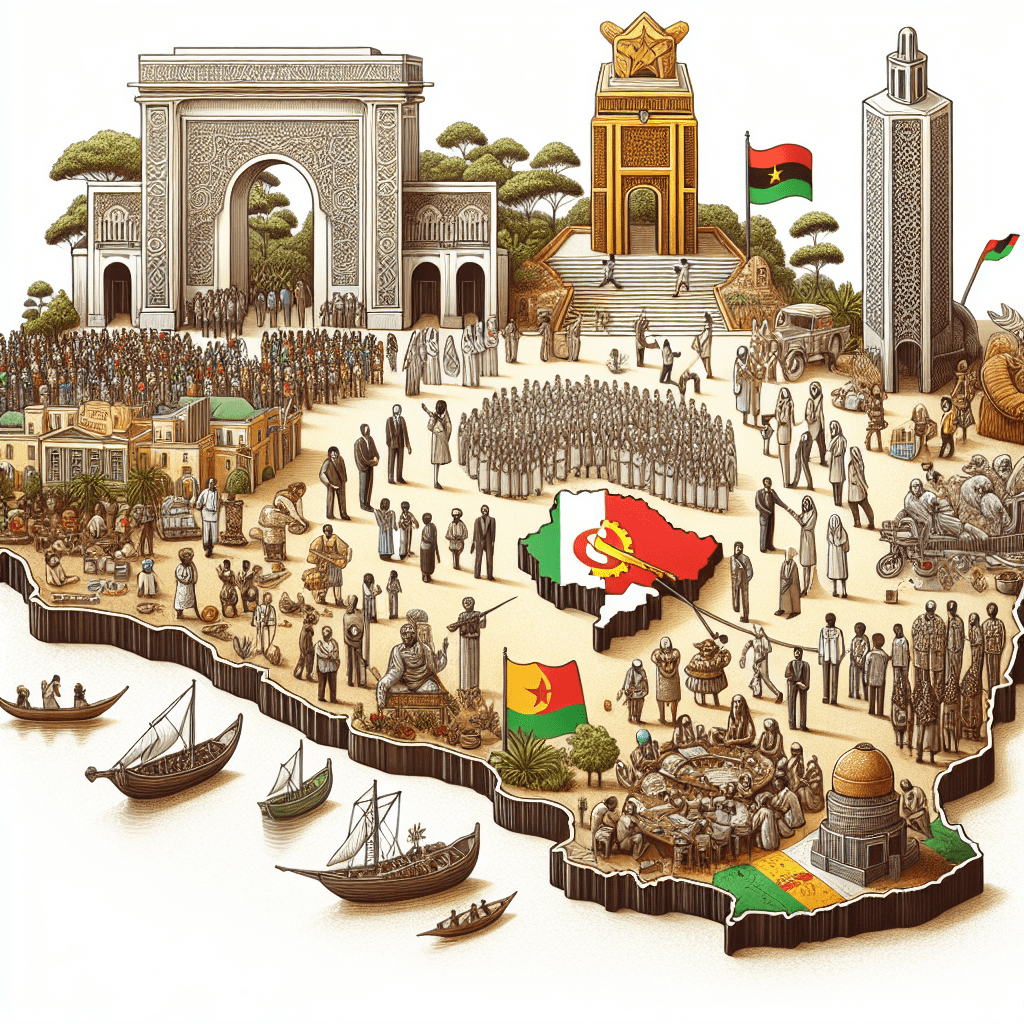Introduction to Algeria vs Angola: Understanding the Countries’ Profile and Bilateral Relations
Algeria and Angola, both located on the African continent, share a history of colonial struggle and the quest for independence. They emerged from their respective colonial eras to engage in a process of nation building, with significant challenges and comprehensive reforms over the years. While Algeria gained its independence from France in 1962, Angola followed in 1975, after a long struggle against Portuguese rule.
These countries’ shared struggles against colonial rule have laid the groundwork for diplomatic relations based on mutual respect and solidarity. The following sections will delve deeper into their geographical and political profiles, economic relations, and sectors of collaboration, as well as cultural ties.
Geographical and Political Overview of Algeria and Angola
Algeria, situated in North Africa, is the continent’s largest country by land area. It has a diverse landscape that includes part of the Sahara desert, the Atlas Mountains, and a Mediterranean coastline. Its political system is a semi-presidential republic with an emphasis on political plurality, though historically it has faced criticisms regarding its democracy index and freedom of speech levels.
Angola lies in Southern Africa, with a coastal line along the Atlantic Ocean. It is rich in natural resources such as oil and diamonds. After gaining independence, Angola was beset by civil war until 2002. Today, it faces various political and social issues but is also known for its substantial economic growth potential. Angola continues to run as a unitary presidential constitutional republic.
Economic Relations and Trade Between Algeria and Angola
Algeria’s economy primarily revolves around energy exports, particularly oil and natural gas. Its GDP is one of the largest in Africa, owing much to the hydrocarbon sector. On the other hand, Angola’s economy is heavily reliant on oil production and diamond mining. It, too, is one of Africa’s strongest economies due to its natural resource wealth.
Trade between Algeria and Angola is still growing with room for substantial development. Both countries have shown interest in diversifying their economies and reducing dependence on oil revenues as part of their economic strengthening measures. Economic cooperation has been identified as crucial for their development, with discussions often surrounding enhancements in sectors including agriculture, infrastructure development, and energy.
In recent years, interactions through bilateral talks and cooperation agreements have aimed at enhancing trade relations. Bilateral trade has the potential to foster growth in domestic industries, ranging from food production to the manufacturing sector.
Cultural Exchanges and Education Cooperation
Despite geographic distance and cultural differences, Algeria and Angola have made efforts to strengthen cultural ties. Cultural exchanges can promote mutual understanding by allowing citizens to learn about each other’s traditions, history, arts, and languages. There are agreements between educational institutions for cultural exchange programs and academic research collaborations that are beneficial in forging strong people-to-people connections.
Educational cooperation features scholarships and training opportunities that can help both nations’ youth to equip themselves with the necessary skills for current labor market demands. Both nations have been engaged in dialogue concerning education system reforms and teacher training programs as a part of their bilateral interests.
Defense And Diplomatic Ties
Algeria, given its military capacity, is one of the major military powers in Africa. The country has expressed its intent to collaborate with other African nations including Angola in terms of security and military training missions. Angola has likewise taken steps to rebuild its military capabilities post-civil war era.
Diplomatically, both countries support each other’s stances in various international forums such as the African Union and United Nations. They often share aligned views on continental issues such as regional security, economic integration, anti-colonialism narratives, and peacekeeping initiatives.
Future Prospects
The future relations between Algeria and Angola hold promises of enhancements particularly through continued partnership within OPEC (Organization of the Petroleum Exporting Countries), as both are members. The prospects also encompass cooperation in combatting climate change impact (since both are part of the Sahara and Kalahari deserts) and working together on sustainable development objectives.
Governments’ efforts toward sustainable economic diversification plans can lead to fruitful outcomes if aligned collaboratively between countries like Algeria and Angola. A focus on renewable energy sectors might yield mutual benefits considering both countries’ significant solar potential due to their geographic positioning.
Notes
Image Description
The ideal image for this article could show a map of Africa highlighting both Algeria and Angola to signify geographic locations. Beneath or beside each country’s silhouette, key national symbols such as flags or landmarks (e.g., the Martyrs’ Memorial in Algiers for Algeria or Agostinho Neto Mausoleum in Luanda for Angola) could be visually represented to emphasize cultural identity. If available legally, actual photographs depicting key highlights such as bilateral meetings between Algerian and Angolan officials or cultural exchange events would add depth to the depiction of their relations.
